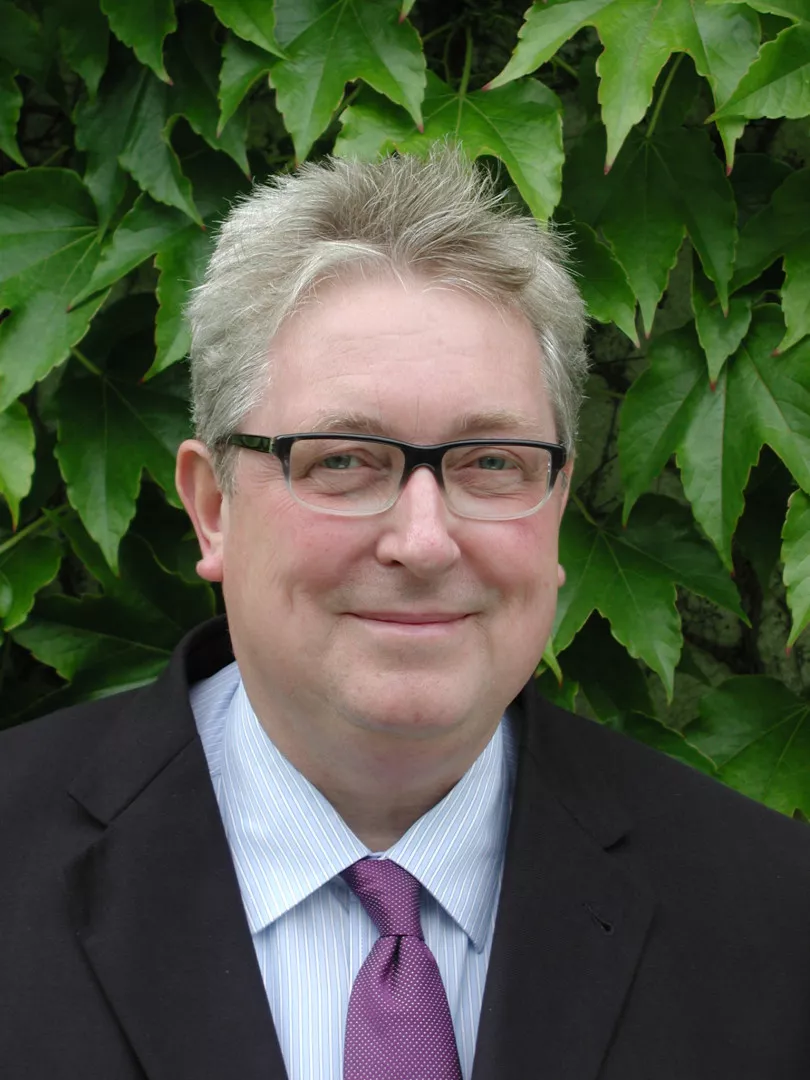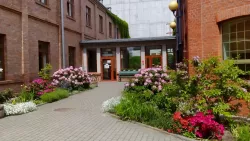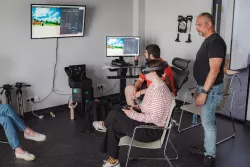International Centre for Research on Innovative Biobased Materials (ICRI-BioM) - International Research Agenda was established in 2019 in cooperation with the Max Planck Institute for Polymer Research in Mainz. Since December 202o it is run by Prof. Alexander Steinbüchel, a world-class microbiologist, whose task is to implement research directions that combine theoretical and experimental methods, polymers and bio-molecules to obtain new materials with pre-programmed properties.
- ŻU: Professor, you have won the international competition announced, inter alia, in Nature and Euraxess. How did you come to accept the challenge of managing the development of our Centre?
Already in 1972, I had first contacts with Poland; I attended two impressive guided tours and visited several parts of Poland. I became “hungry” for Poland, and my interest in the country and people continues until now. When I received the offer for the ICRI-BioM Director position to build up something very new, I considered this to be a great chance to get deeper involved in your country.
-ŻU: Your research focuses on molecular microbiology and biotechnology, including processes related to the production of biodegradable PHA polymers, biosynthesis and biotechnological production of polyamides. How will you use your experience to guide research at the Centre?
Biomaterials and polymers are in the focus of ICRI-BioM. They match exactly the compounds which I’ve been investigating for 30 years at my university in Germany. I have a great experience in this field and I published many papers including a 10-volume handbook at Wiley-VCH. My good contacts with other polymer scientists will help to generate something exciting.
-ŻU: You worked at many universities in several countries. How do you find work in Poland - the conditions and its organization in comparison with those universities?
The situation in Poland is different from Germany although both countries belong to the EU. During the first months at ICRI-BioM I experienced an overburdening bureaucracy. I concluded that it is more difficult to acquire money for research in Germany than to spend acquired money for research in Poland. These processes must become much easier and require more support from the central administration!
-ŻU: How do you imagine the future of the Centre? Is there anything that makes you optimistic?
Every new Research Centre made from scratch faces difficult times. My task will be to fill the Centre up with good ideas, strategies and people and to keep it growing. Since research on biomaterials is an important subject as we can experience it in almost all parts of our daily life, I am very optimistic that the Centre will have a bright future.
-ŻU: Do you like Poland and Lodz, the local people and surroundings? Well-being is important for both scientific collaboration and everyday life.
Lodz is a big city quite different from others in Poland and has an interesting history as an important centre of the European textile industry. This industry is now mostly gone and you can only imagine scarcely how important this industry was when you see some impressive renovated old red brick factory buildings. Now, other economies have become important. The old buildings are no longer needed but are still existing mostly in a bad condition. During a drive on the 30 km long circular highway surrounding the centre, the high residential buildings from the period of communism dominate the view beside new huge apartment buildings recently constructed all over the town. Most people are very friendly and help me to get orientated in daily life.



